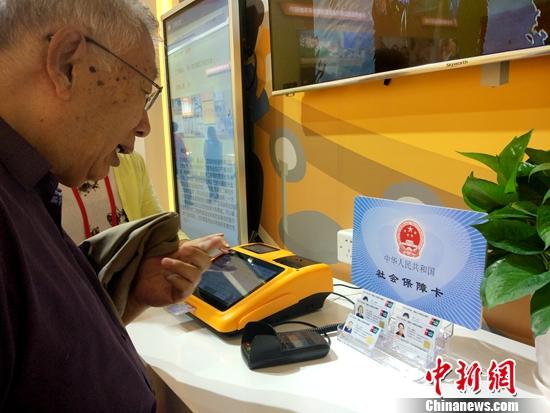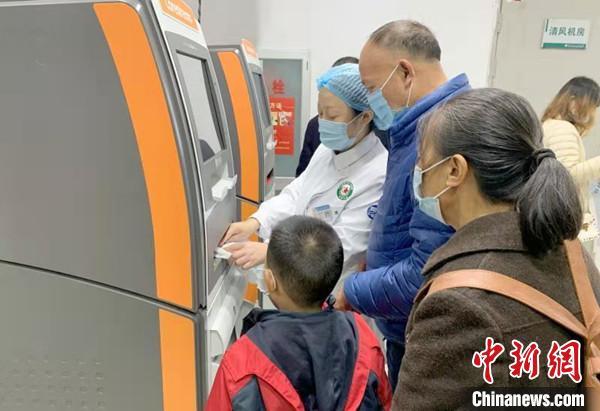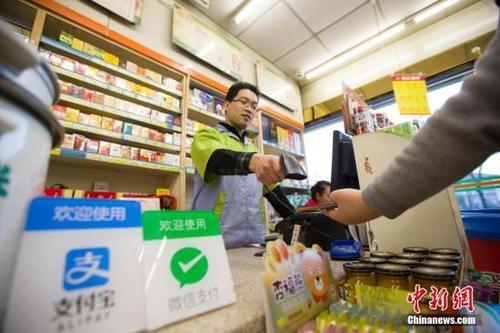Don’t let the elderly be abandoned by high technology! The country has made a move!
Beijing, Nov. 26 (Reporter Li Jinlei) The old man was refused to show his health code when he entered the station, the 94-year-old man was lifted up in the bank for face recognition, and the old man could not use his mobile phone to pay for medical insurance … … Recently, many incidents of "old people being abandoned by high technology" have aroused great concern.
At the the State Council policy briefing held on November 26th, the National Development and Reform Commission, the central bank and other departments responded. How to solve the problem of "digital divide" faced by the elderly? What are the practical measures? Let’s watch together.

Data Map: People are visiting the content of social security in the exhibition hall. Zhongxin. com reporter Li Jinlei
"The traditional way should be preserved."
At present, the elderly population in China has exceeded 250 million. With the rapid growth of the elderly population, many elderly people can’t surf the Internet and use smart phones, so they encounter inconvenience in daily travel, medical treatment, consumption and other scenes, and can’t fully enjoy the convenience brought by intelligent services.
On November 25, the state shot! The General Office of the State Council issued the Implementation Plan on Effectively Solving the Difficulties of the Elderly in Using Intelligent Technology.
Zhao Chenxin, Secretary-General of the National Development and Reform Commission, said at the policy briefing in the State Council that the core of this "Implementation Plan" can be summarized in one sentence: while using intelligent technology, "the traditional way should be preserved". The first category is to keep traditional paper vouchers, the second category is to set up service channels for the elderly, and the third category is to keep manual services.
Zhao Chenxin revealed that he is working with relevant departments to study supporting implementation plans in various fields in accordance with the requirements of the Implementation Plan, and strive to introduce a number of effective measures to solve the most urgent problems of the elderly using smart technology as soon as possible before the end of the year.

Data map: The staff helps the elderly to register. Photo by Tianqi Luo
Never let an elderly person fail to see the disease because of intelligent technology.
Nowadays, many hospitals use intelligent technology to provide patients with services such as registration, payment and printing inspection results, which greatly facilitates the majority of patients to see a doctor, but at the same time, it also brings a lot of troubles and difficulties to some elderly patients who do not use or cannot use intelligent technology.
"We must not let an elderly person fail to get a job because of the application of intelligent technology, and we must fully protect their legitimate rights and interests." Wang Haidong, director of the Department of Aging Health of the National Health and Wellness Commission, said.
Wang Haidong said: First, while using intelligent technology, medical and health institutions are required to retain traditional service methods.
The second is to unblock the channel for family members, relatives and friends or family doctors to register for elderly patients. We must keep this channel and unblock this channel.
The third is to keep the manual service window. On-site registration, payment, printing inspection results and other services, we must keep the manual service window, which is a familiar service method for the elderly. At the same time, there should be doctors, volunteers, social workers and other on-site services for the elderly.
The fourth is to further simplify intelligent technologies such as online appointment registration and online consultation, so as to meet the needs of the elderly.

The picture shows the "passenger-only channel without code". Photo by Jing Jingjing
You can’t use the health code as the only proof of travel.
At present, under the epidemic situation in COVID-19, many elderly people are puzzled by the necessary "health codes" in and out of various buildings and halls.
"You can’t use the health code as the only proof of travel. You should adopt a combination of online and offline methods to facilitate people’s travel." Wang Haidong said.
Wang Haidong pointed out that the first is integration. Many friends report that there are still some inconveniences in automatically integrating the relevant information into the health code, such as letting yourself fill in the information. Through technical means, it is possible to coordinate relevant departments, so that computers can spend more time and the elderly can save more time.
The second is mutual recognition. The third is to retain other ways to replace inspection. For example, elderly people who don’t use smart phones will be replaced by valid identity documents or paper certificates. The fourth is to open a channel without health code. The fifth is to integrate the health code with various bus cards, citizen cards, old-age cards, etc. through technical means, so as to make other alternative ways can also be used as a voucher for travel.

Data map. China News Service reporter Zhang Yunshe
Comprehensively carry out centralized rectification of refusing cash.
Behind the incident of "the elderly refused to pay for medical insurance in the rain" is the reality that many elderly people do not use mobile phones to pay and are used to using cash, and some places refuse to accept cash, which makes the elderly helpless.
In this regard, Li Wei, director of the Science and Technology Department of the People’s Bank of China, said that under the unified deployment of the State Council, the centralized rectification of cash refusal and the construction of a long-term mechanism will be carried out in an all-round way.
Li Wei pointed out that it will work with relevant ministries, local governments, banking financial institutions and grass-roots communities to guide and standardize the cash use in the fields of water, electricity and gas, public utility payment, and high-frequency service places such as retail, restaurants, shopping malls and parks. At the same time, strengthen daily supervision. Through unannounced visits, inspections and other means to carry out a thorough investigation, establish a list of illegal subjects, focus on tracking, and severely punish some cash-refusing subjects who are highly concerned about public services, people’s livelihood and the public and have a large scope of influence.
In view of the problem that some smart financial services and products mainly target young and middle-aged customers and cause difficulties for the elderly, the central bank will guide financial institutions, focus on the daily high-frequency financial scenes of the elderly, and create "suitable" financial services that integrate online and offline and meet the needs of the elderly. For the elderly with mobility difficulties, relevant financial institutions will also be organized to improve their services, use some mobile devices to extend their service tentacles, and take the initiative to go to the door or handle financial services remotely.
The country has made a move, hoping that the elderly will not be abandoned by high technology! (End)